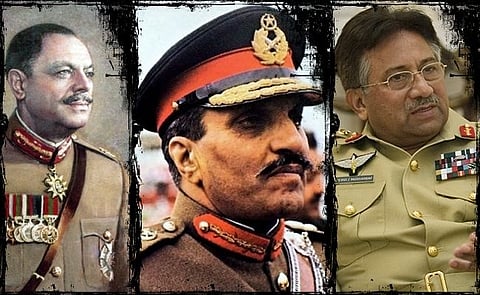A coup by other means?
A coup by any other name would smell as foul, wouldn't it? In a country whose political history is the story of uncountable civilians dethroned by military coups, the question of whether the Supreme Court's ruling to send Prime Minister Yousuf Raza Gilani home was the beginning of the end for another civilian government is not one borne of an over-imaginative or conspiratorial mind. Not here in Pakistan, where unelected forces are always waiting in the wings to 'rescue' Pakistanis from their elected leaders.
This time, however, a democratically elected prime minister has not been sent home for the usual reasons. Transparency International claims Pakistan lost USD 94 billion through corruption, tax evasion and bad governance during the four years of Gilani's tenure, while Gilani's fingerprints seem to be all over at least three of the most high-profile financial scandals hogging the headlines. But the former prime minister was not handed his walking papers for earning the title of 'most corrupt prime minister in Pakistan's history'. Since 2008, when the Pakistan Peoples Party (PPP) came to power, hundreds have fallen victim to sectarian militant groups around the country, while the numbers for suicide bombings and other incidents of terrorism have only gone up and up. And yet, Gilani wasn't ousted for failing in his fundamental duty to provide citizens with the protection of life and property promised in the constitution. He wasn't ousted for not having any answers, as chief executive of the country, to the question of what Osama bin Laden was doing living for years only a stone's throw away from Pakistan's elite military academy. He wasn't ousted because swathes of Pakistan suffer up to 22 hours of power outages everyday, forcing industries to shut down and pushing rioters to clash with the police and burn properties across the country.

